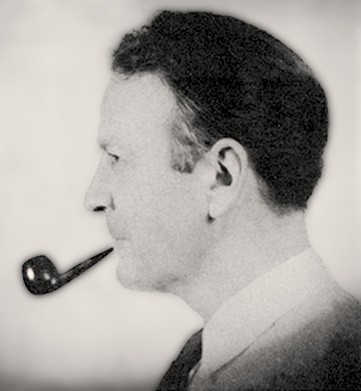White Men Should Read Raymond Chandler
Chris Roberts, American Renaissance, August 10, 2020
After his 1996 novel, Fight Club, became a sensation, Chuck Palahniuk explained one of the reasons he wrote it:
[B]ookstores were full of books like The Joy Luck Club and The Divine Secrets of the Ya-Ya Sisterhood and How to Make an American Quilt. These were all novels that presented a social model for women to be together. But there was no novel that presented a new social model for men to share their lives.
Mr. Palahniuk’s books capture a much needed masculine view of the ills of society. But they are all degenerate. The protagonists are anti-heroes, the perverted acts in many of the books could make the cashier at a smut shop blush, and Mr. Palahniuk’s love of shocking his readers is too often his first priority. Many other politically incorrect writers, such as Brett Easton Ellis, do the same.
While the Western Canon will always be marvelous, we have a need for literature about life in big cities, sprawling bureaucracies, and all the rest of modern living. Fiction that grapples with — and doesn’t just reflect — the alienation and challenges of our world without accidentally glamorizing it is rare. A star exception to this is the work of Raymond Chandler.

Raymond Chandler
Chandler was a pioneer in “hardboiled fiction,” the gritty detective novels that inspired noir cinema. The hero of most of his books, Philip Marlowe, is a dogged private investigator in Los Angeles. Many of the trappings of these novels have become well known, such as the cigarettes and the temptresses — but they are not the point. Chandler is a master at depicting city life — not just the filth, crime, and drugs, but all the things that make them possible: corrupt cops, dishonest doctors, malicious millionaires, and all the other bad actors in every major city. His work is often called “pulp,” but his characters are not the fantastic creatures who face off with James Bond. They are petty thugs, loose women, and drones on government payroll, the people who make day-to-day life so challenging. And Chandler understood race:
It was a long narrow room, not very clean, not very bright, not very cheerful. In the corner a group of Negroes chanted and chattered in the cone of light over a crap table. There was a bar against the right hand wall. The rest of the room was mostly small round tables. There were a few customers, men and women, all Negroes.
The chanting at the crap table stopped dead and the light over it jerked out. There was a sudden silence as heavy as a water-logged boat. Eyes looked at us, chestnut colored eyes, set in faces that ranged from gray to deep black. Heads turned slowly and the eyes in them glistened and stared in the dead alien silence of another race. (from Farewell, My Lovely)
A three-piece Mexican band was making the kind of music a Mexican band always makes. Whatever they play, it all sounds the same. They always sing the same song, and it always has nice open vowels and a drawn out sugary lilt, and the guy who sings it always strums on a guitar and has a lot to say about amor, mi corazón, a lady who is “linda” but very hard to convince, and he always has too long and too oily hair and when he isn’t making with the love stuff he looks as if his knife work in an alley would be efficient and economical. (from Playback)
Philip Marlowe is just as ordinary. He isn’t a flawless good guy like Tom Clancy’s Jack Ryan. He doesn’t have perfect aim with his pistol, women don’t find him irresistible, and there are no high-tech gadgets in his basement. Marlowe is simply smart, tough, and interested in the truth. Those traits are what set him apart from the world he’s in, and they’re what keep him at his job. Every investigation, no matter how small, leads to something bigger, more complex, and sinister. Those discoveries reveal new levels of malfeasance, incompetence, and corruption within the forces that are supposed to keep things running smoothly. Marlowe stands alone against it all, even with the knowledge that there is no escaping it. Surrounded by sleaze at best and evil at worst, he does what he can, when he can, in a world that often seems dedicated to caving in on itself. In other words, he is like race dissidents today.
A Guide to Raymond Chandler’s Novels
He wrote seven:
- The Big Sleep (1939)
- Farewell, My Lovely (1940)
- The High Window (1942)
- The Lady in the Lake (1943)
- The Little Sister (1949)
- The Long Goodbye (1955)
- Playback (1958)
The Big Sleep and The Long Goodbye are considered his best. While that is certainly true of The Big Sleep, it is arguable of The Long Goodbye, which is more precisely the most unique of his novels — so not the best place to start. Along with The Big Sleep, I like Farewell, My Lovely; The High Window; and Playback. Most of Chandler’s novels became movies, many of which are well-regarded. On the whole, these films are good , but do not capture the essence of the novels.















